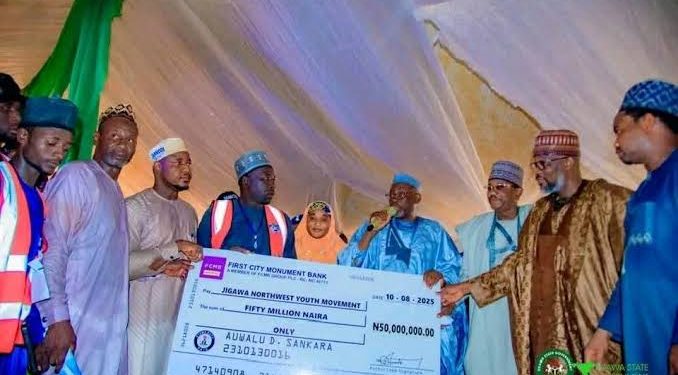Small business owners and traders in Jigawa State have received a major financial boost as Governor Malam Umar Namadi launched a N50 million empowerment programme in Ringim Local Government Area. The initiative targets 250 beneficiaries, each set to receive N200,000 to expand or stabilise their businesses.
The programme, initiated by the Commissioner for Special Duties and Humanitarian Affairs, forms part of the state’s broader economic development strategy. Beneficiaries were drawn from across Ringim’s 10 political wards, with 25 people selected per ward to ensure fair representation. Officials say the funds will help recipients invest in tools, equipment, inventory, and other essentials needed to improve productivity and income.
Speaking at the launch, the governor described the commissioner’s move as unprecedented in Jigawa’s history. He said it marked the first time a commissioner had initiated such a large-scale direct financial intervention for citizens, calling it “commendable and worth emulating.” He also highlighted the importance of political leaders prioritising the needs of ordinary people, adding that the gesture reflects genuine concern for the welfare of citizens and the growth of small-scale enterprises.
The commissioner explained that the empowerment aligns with Jigawa’s 12-point agenda, which focuses on job creation, poverty reduction, and economic self-reliance. He noted that small businesses remain a critical driver of local economies and that targeted financial interventions like this can transform livelihoods in both rural and urban areas.
He added that the programme would be sustained, citing its early success in boosting incomes and enabling many traders to become less dependent on external aid. Under the current administration, the state plans to continue investing in small-scale enterprises, recognising them as a cornerstone of economic growth and a vital tool for addressing unemployment.
For many of the beneficiaries, this intervention is not just a cash grant but a lifeline to keep their businesses running in a challenging economic climate. The funds are expected to stimulate local markets, create ripple effects in job creation, and contribute to Jigawa’s broader goal of building a self-sustaining economy.
With Nigeria’s MSME sector contributing significantly to national employment and GDP, Jigawa’s approach offers a model that other states may consider in efforts to strengthen grassroots businesses and reduce poverty.










